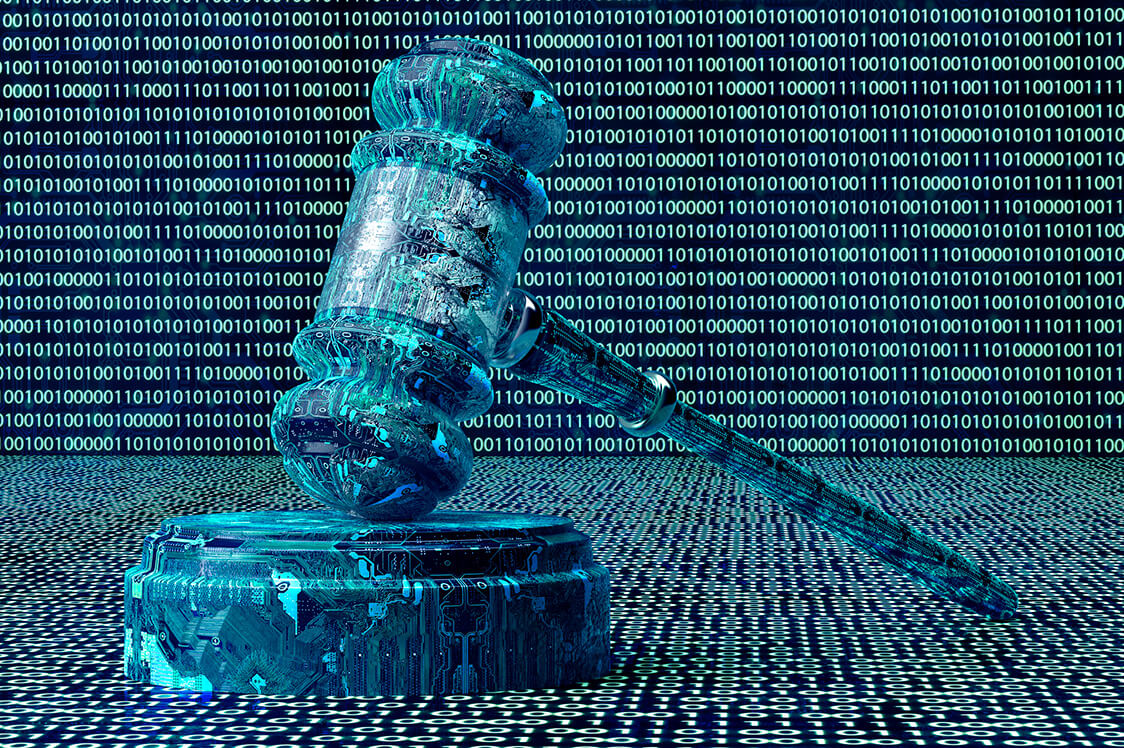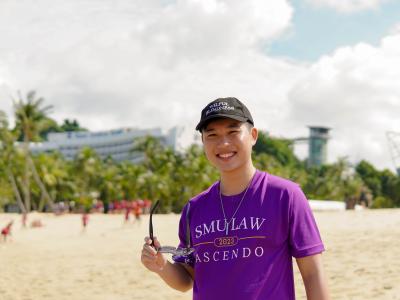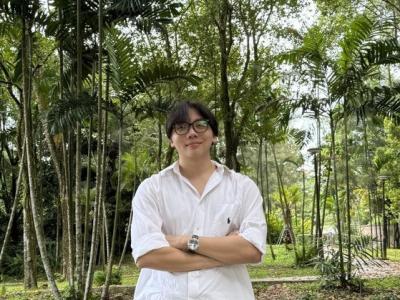
Hacks, leaks and security breaches have become a routine feature of news headlines around the world over the past two years, often followed by long and complex discussions over who is culpable, and how they can be prevented in the future. The expansion of digital technology into every aspect of daily life and the commoditisation of data have happened so rapidly that governments and the legal profession are often playing catch-up.
In Singapore there have already been some very important cases that have gone all the way to the Supreme Court and tested the readiness of Singapore’s legal system for this new environment, says Warren Chik, Associate Professor of Law at Singapore Management University (SMU)
“The cases tend to be few and far between as the law lags behind technological developments, but when they do enter the picture it is usually on an important point of law,” he says.
Assoc Prof Chik points to the 2005 case of SM Integrated Transware vs. Schenker Singapore, on the use and recognition of electronic writing and signatures in relation to contracts and other forms of transactions; and the case of RecordTV vs Mediacorp TV in 2010 on the legality of TV streaming platform services.
“In Singapore, the legislative responses have been faster and it has accelerated in recent years with new amendments in the works for the Electronic Transactions Act (2010), the Copyright Act, the Personal Data Protection Act (2012), the Computer Misuse Act (2018) and the Broadcast Act and its regulations,” he says. “Hence, the Singapore legislature is cognisant and is working hard to stay up-to-date on laws, and even in some cases be ahead of the game.”
Many of the key areas of concern are already on the radar of lawmakers, according to Assoc Prof Chik.
“Academics and private companies are also involved and there are increasingly forums such as conferences and seminars to address these concerns and to educate businesses and consumers—i.e. society as a whole—on the changes in the ICT landscape and what that means for business and employment, daily life and the city of the future,” he says. “In fact, SMU’s Centre for AI and Data Governance was set up to facilitate such discourse.”
“We saw ‘deliberate falsehoods’ being seriously examined by a Parliamentary committee and debated in public through consultation paper submissions and hearings in March 2018, which led to the introduction of the Protection from Online Falsehoods and Manipulation Bill in Parliament on 1 April 2019. Also, the Cybersecurity Act was passed in February 2018 and subsequently assented to by the Singapore President in March 2018. There are also ongoing and changing financial regulations and content regulations to keep abreast of developments in these domains.”
Most recently, the laws relating to the internet of things, electronic finance—especially cryptocurrencies—and artificial intelligence have come under scrutiny in Singapore, as the executive and the legislature try to understand the extent of their impact on the country, and the risks that they could pose if not properly managed. The ethical considerations in relation to the use of artificial intelligence is also something that will be central to the work of the SMU AI Centre.
Cybersecurity is an increasingly important area of focus, with potentially significant implications for society, particularly as the sheer volume of data being collected by companies and governments increases. This problem has also become more prominent with the recent data breach cases involving medical and health information in Singapore by SingHealth and the Health Sciences Authority (HSA) as well as the personal data leak of HIV patients.
“…lawyers and law students or graduates—and educators—will have to be willing to explore new areas of practice while adapting to this new environment and the new innovations and the tools associated with them.”
“Consumer confidence and trust can easily disintegrate in the event that proprietary information is compromised and data breaches occur,” Assoc Prof Chik says. “There is also increasing concern on how to manage the sheer volume of digital information, particularly on the worldwide web and what that means for content regulation—such as censorship—and ‘informational warfare’, including the perceived interference in elections and referendums in recent years, as well as religious indoctrination.”
As exemplified by Facebook’s two major data leaks in 2018 alone, companies are also having to come to terms with their legal and moral obligations, he adds.
“The dilemmas facing the dominant players such as Google, Facebook, Apple, Microsoft and Amazon brings up many legal, policy and ethical issues that both governments and the companies themselves are grappling with—including corporate ethics and social responsibility, competition concerns, data protection and privacy, and so on,” he says.
The legal industry, too, will need to adapt to technological change. Artificial intelligence, which is likely to disrupt many industries, could evolve to the extent that it is able to perform some of the basic tasks currently undertaken by lawyers. However, the evolving technological environment could also present an opportunity for the profession, according to Assoc Prof Chik.
“Like many other industries, lawyers are not spared from job displacement and changes to their work from technology. ‘Tech for law’ is becoming a reality, but the extent to which it will actually cause displacement is unclear, but in the meantime, lawyers and law students or graduates—and educators—will have to be willing to explore new areas of practice while adapting to this new environment and the new innovations and the tools associated with them,” he says. “In fact, those with the capacity and drive can even take advantage of ICT to develop new technologies and become the disruptors themselves.”

